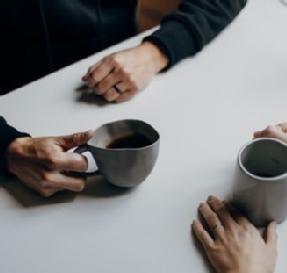Widening Participation
At WMS, we are about making sure the medical workforce of the future is representative of the society it serves
What is Widening Participation?
At Warwick, we take a lifecycle approach to Widening Participation, meaning that as well as working to widen access to medicine for groups who are currently under-represented in medicine, importantly we try our best to support students to transition all the way through medical school, to thrive and achieve success in their studies and are supported to achieve their future career ambitions and potential.
Want to get involved and find out more, contact WP Lead for Warwick Medical School, Emily Róisín Reid.
Student Demographics
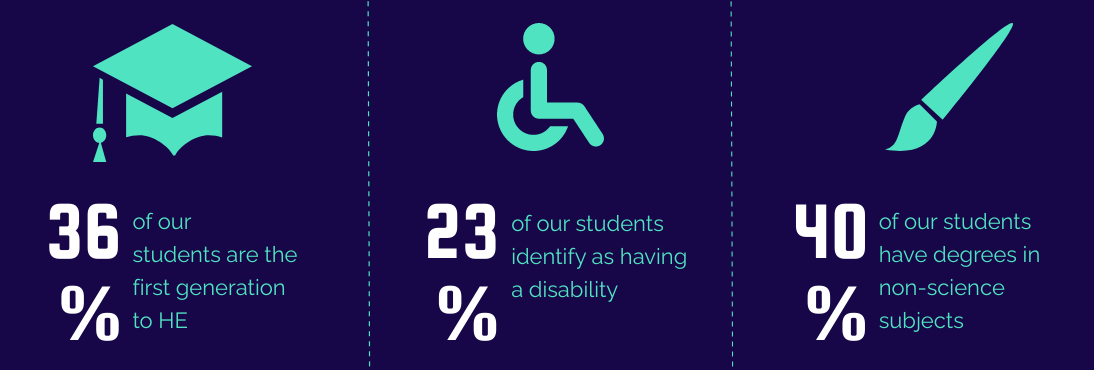
|
|
|
What We're Doing To Help
Financial Support
We do our best to stop money from being an additional worry for our students.
As well as help offered by the NHS Bursary that takes into account financial circumstances, Warwick offers additional financial assistance for students in need.
Some examples include:
- WPH bursary for students from low-income households.
- Warwick Undergraduate Student Bursary
- Warwick Hardship Fund for students with unforeseen financial hardship.
We are actively lobbying locally and nationally for more financial support for GEM students.
You may also like to look into the Medical Schools Council pages, which offer advice and financial support for students. Find out more here.
Pastoral Support
During such an intense course it's important to get as much support as possible.
We try to support our students as early as possible to deal with any problems before they interfere with their academic performance.
Here are some ways we can help:
- A dedicated Pastoral Support Team, including an individual Tutor, Senior Tutor and a Deputy Senior Tutor for each year-group.
- Disability support for advice and support
- Access to Warwick Wellbeing Support services all year round, who offer wellbeing masterclass sessions as well as counselling services.
- Our dedicated Senior Careers Guidance Consultant will help you maximise your time at medical school and plan your future, offering 1-1 impartial support and guidance throughout your studies.
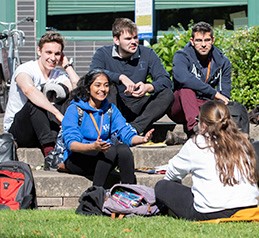
Peer Support
Few things are more helpful than someone who understands your situation from their own experience.
Our students are our strength, and give support to their peers in a variety of ways.
- Non-scientist Peer Teaching allows students to help their peers from a variety of academic backgrounds throughout the first, most academically challenging, year.
- BAMEntor aims to match incoming and first-year students who identify as BAME with senior peers from similar backgrounds, providing both academic and pastoral support.
- WHAM Soc offers support to current students on foundation applications, future specialities and more - the insider knowledge from students who've gone through the same process is invaluable.
- Attainment Gap Group- A student and staff run group, created to identify and deal with systemic factors contributing to differences in attainment between groups of medical students.
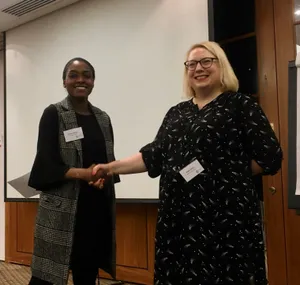
Research
Our students and staff are involved in a wide range of research aimed at identifying issues holding back under-represented student groups, and coming up with new ways to deal with them.
Some of our important work includes:
- Students Aryaki Kothari and Maariyah Vankad won Best Abstract Prize for their work entitled: "The BAME Medical Student Experience, and its impact on the attainment gap: A Meta-ethnographic review". Presented at the National Widening Participation Conference.
- In2MedSchool
A Widening Participation initiative which provides free 1-to-1 ongoing mentoring for students aspiring to study Medicine. This is a national project set up collaboratively by one of our alumni, Gabriela Barzyk-Sheriff. The project won the Most Sustainable Project Award at the 2020 National Widening Participation Conference.

Applicants
Increasing applications from a diverse range of potential students is an important way to ensure Warwick's Doctors are representative of the communities they will be working in.
Warwick's entry requirements allow students from a variety of professional backgrounds as well as new-graduates to apply.
As one of the only medical schools accepting students from non-science backgrounds, and with no limitations on A-Level or GCSE requirements, our aim is to recruit the best range of students as possible.
Some of the ways we help ensure a wide variety of applicants:
- Work Experience Programme- We work with local hospitals to organise work experience for future applicants, ensuring everyone has access to healthcare placements without the need to have pre-existing contacts.
-
The MSC Summer School provide an insight into medicine and healthcare courses alongside information and advice on how to apply. The programme is a widening participation initiative aimed at young people from areas of England where few students apply to study medicine.
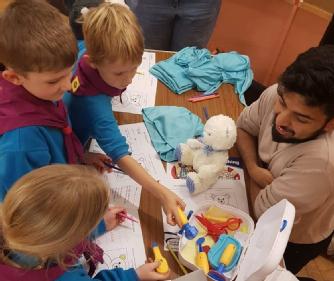
Inspiring Young People
We work tirelessly with our students to inspire the next generation of doctors.
Our groups and societies connect with young people at every stage of their education, inspiring primary-age children to dream of a future in medicine, or helping secondary-age children with applications and interviews.
- Widening Participation in Health and Medicine Society (WHAM Soc) offer help at every stage of application. From running mentoring schemes with local pupils, to organising access courses in schools and introducing young people to healthcare professionals through practical sessions, this student-lead group really makes a difference in the community.
- Primary Aid- Set up by a Warwick student, this charity delivers CPR and first aid teaching to schools, hoping to get children interested in medicine early.
- In2MedSchool- A mentoring scheme to help students from under-represented backgrounds get into medicine. Set up by another Warwick Student.
- MMI For All- A scheme organised by two of our students to provide advice and tips, to help students from all backgrounds with medical school interview technique.


